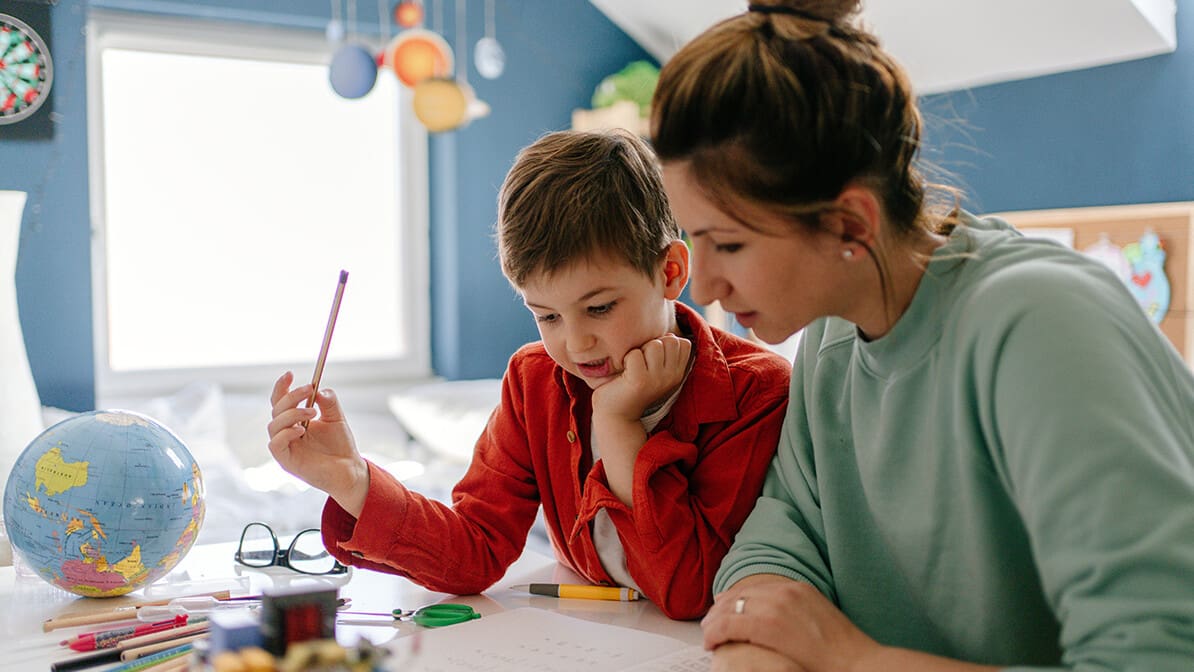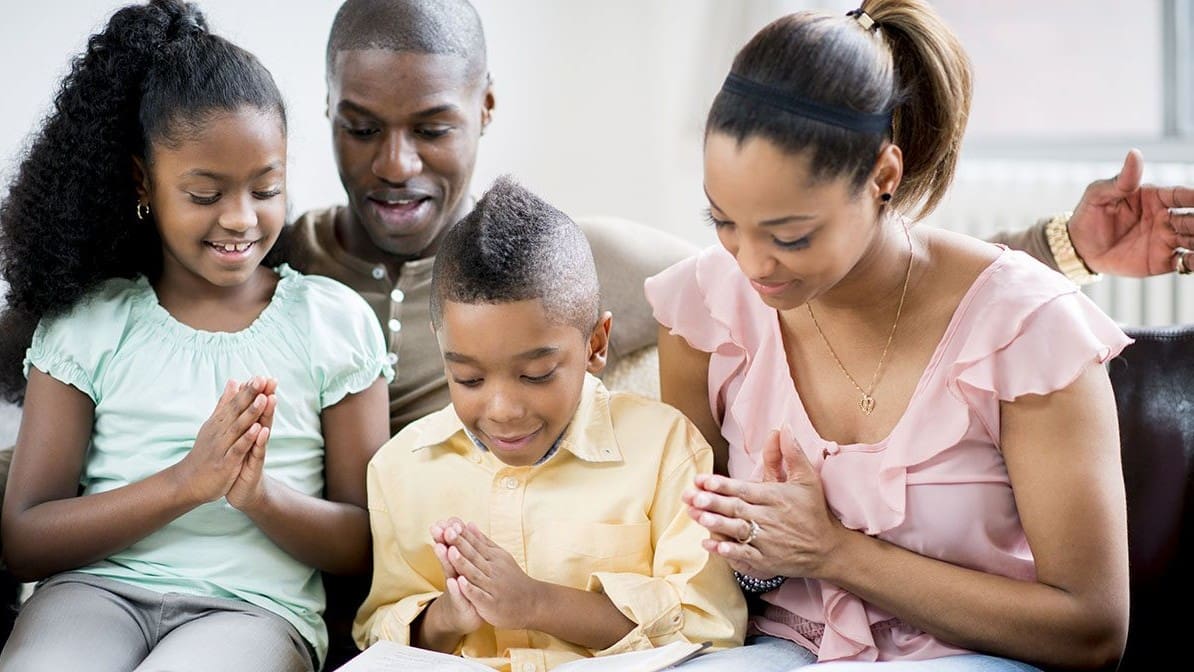
Teach from Love: Part 2
In this two-part series, Sam Sorbo, wife of actor Kevin Sorbo, teacher, and homeschool advocate sat down with Inspiration.org’s Rhonda Robinson to talk about her book Teach From Love and encourage parents who are now in the role of the teacher during the pandemic.
RR: At every turn, the system, by nature (not conspiracy), undermines parent’s authority when you consider school activities always trumps a family event or something that is needed within the family. It’s the parents to have to present an excuse. The child has to be excused by the school. The school must put their stamp of approval on it.
Sam Sorbo: That’s an interesting point. I really never thought of that way. And of course, I don’t, I try not to use always, but yeah, often. And if you wanted to take time off because grandma’s visiting then, no. You need to make some amends there. You need to ask for permission. You’re right. So that’s another example.
RR: Schools were originally designed to create a population that would fuel the industrial revolution. Children would leave school and go into factories. Schools were designed to create a workforce. But now we have an entirely different need in a workforce. Innovation is needed. Creativity. The ability to work without a taskmaster.
My question is, could it be that maybe this COVID is breaking the system literally and could very well give birth to an entirely new generation of learning, and education?
Sam Sorbo: So are there a couple of different points. I think that COVID absolutely has challenged the system to the point where the system is going to need to shift. And it already has, right?
Not to my satisfaction. But it’s already shifted.
At the same time, we have so many decades of being drilled in this practice of ” education” which, I would argue is not—it’s training and schooling. But it’s not education.
You briefly touched on the idea that our system was designed to produce workers. Actually, the original system, which we borrowed from the Prussian, the original system was designed to produce soldiers— people who obey. And so they co-opted it. They said, this would be really great because then we could have worker-soldiers, with the people going into the factories.
And what are we teaching them to do? At the sound of the bell, you change classes. Or at the sound bell… totally Pavlovian.
The system itself has been corrupted, I would say. And it absolutely needs a complete retrofitting. And I don’t know if that’s really possible. And the reason I say that, is because people are individuals. So there is no one size fits all. And by the way, with COVID everything, or so much of what we’re doing moving online, I don’t think that it’s healthy. And it certainly creates a whole new frontier.
I use the internet to educate my children to a certain degree, but are they supposed to be online for Zoom classes all day?
Absolutely not.
And I would never subject my child to that. I think that that’s awful.
It’s forcing parents to say, wait a minute. So let me think about this. What exactly do I want for my child? And hopefully, more parents than not, are thinking, maybe we just get you to read some good books and we just do this over here, and we’ll get you some math books. And then you can go online for, the science experiments. Or something like that. And so they start to hybridize and customize the education of their children. And the beauty of homeschooling, that I’ve been expounding on for a few years.
You can focus the education of your child on the things that interest the child. And in that way, you make a little bit of a trade with them. So you get them to do the stuff that you want them to do— the basics, right?
You need to have English, Grammar, you need to read the classics.
But at the same time, if you’re interested in engineering, then let’s go figure out how you can make your own combustion engine. Or we’ll get you a 3D printer or, we’ll get you access to a 3D printer for you to print the design that you’ve figured out. And so you can engage the child and show the child that education isn’t a laborious, tedious thing that our schools teach our children—sets up a barrier for them, for learning. So they never want to learn again.
If you remember graduating high school, it was like, ah, slam the book closed. I hope I never have to open another book again. Right? And, yet we know we’re going to college. But there are a lot of kids who just have no plans to go to college. Because they hate learning.
What a horrible, horrible thing.
We are born with innate curiosity, and the schools beat that curiosity out of us. And, no, as a parent, your job is to ignite that curiosity and inform your child how best to harness it to their benefit and to the benefit of others.
The other thing that I wanted to touch back on just quickly, is, initially our school houses were one-room schoolhouses. And the public education system that started in Massachusetts, back in the 1700, was geared to teach children moral values and ethics. And that’s why they used the Bible as their primary text. And they had the new England primmer, which taught Bible passages and cursive writing. The idea behind that was that you wouldn’t have a Republic with the body politic wherein the power resides unless you had a morally principled people.
You need to teach children morals. And so that’s why I wrote my book, Teach From Love.
RR: Tell us a little bit about that.
Sam Sorbo: So I call, Teach From Love, a school year devotional for families.
Because as I was writing it, of course, I started out writing it for homeschoolers. And then I thought, wait a minute. Who really needs this book? Kids going to public school who were, basically by virtue of their going to public school, denied access to the Bible. And I say that because they are taught things that are antithetical to the Bible as if they were facts. And the school says, yeah, but you can take them to church one day a week for an hour, or maybe, you know, maybe a youth group. But you know, 80% of Christians, who was a professing Christian, leave the church within four years of graduating high school.
So they’re not getting the Bible.
Clearly, they’re getting something that is antithetical to the Bible. And that’s why when I talked to pastors, I tell them, you need to support Christian education and homeschooling for your congregants. Or you won’t have a church.
You simply won’t.
If 80% of the youth is leaving the church, we’re not going to have churches. That’s it. At the end of the church.
And what I see with COVID, I see an opportunity for a revival, frankly. Which is slightly unexpected, but you know, God works in mysterious ways.
So I wrote this devotional and it stems from when I was teaching a class to seventh grade and at the start of every class, I would put a godly virtue up on the board, just one word. And we would workshop it and discuss it.
What does it mean?
Why is it, why is it important?
Why is it necessary?
And I put the word patients up on the board and the kids really couldn’t describe patients. They were like, well, you, know, you’re, okay waiting. And they didn’t really have a good definition. I said, well, okay, let’s, let’s talk about the antonym for patients. What’s the opposite, or impatient?
So what is impatient? And we didn’t have a good word. What does it look like? And we came up with, it looks like you’re frustrated, angry, red-faced, right?
The opposite of patient is anger.
This was an enormous epiphany for me.
The opposite of patients is anger. And so with that, I thought, you know, these kids are teaching me things and it’s important that we teach these things to them.
You know, why is patience important? Because otherwise, you’re angry.
What a horrible way to go through life. So learn patience, you know, it’s a virtue, right? And so I put together a daily devotion, it’s very quick a Bible verse. And then there were a couple of questions about the little story.
But that encourages you to discuss the value of virtue or how best to exhibit that virtue or what have you. And then at the end of each week, I put a notes page that you can write down anything that your child says that you find impressive. Because they do, they say amazing things, our children, and we really can stand to learn a lot from them.
RR: Is there, is there anything else that you would like to leave our readers with one thought that you would like to say to parents?
Sam Sorbo: Yes. And that is, this: Children are a gift.
When you send them to school, you are giving the gift to somebody else to open. So I would challenge you to understand the tremendous sacrifice you make when you turn your children over into the care of somebody else for their education, specifically.
You can’t make it up on weekends.
You can’t make it up with family dinner.
You are losing something very valuable when you do that. And so if I were you, I would make every effort to figure out how to get it done. Even if I joined forces with some other parents or hired, somebody for science class.
But I want to tell you the answers are all in the textbook. So if you just crack the textbook with your child, you can actually educate your child and yourself at the same time. It’s not rocket science. It just isn’t.
It’s just not as hard as the “authorities” want you to believe. They need jobs. That’s what they’re pulling for.
…
Buy your copy of Teach from Love: School Year Devotional for Families by Sam Sorbo
Trending Now
Sign up today for your Inspiration Today Daily Newsletter
Supercharge your faith and ignite your spirit. Find hope in God’s word. Receive your Inspiration Today newsletter now!
Rhonda Robinson
Rhonda Robinson is a speaker and the author of Freefall: Holding Onto Faith When the Unthinkable Strikes, offering women spiritual wisdom to transform the darkness into a season of profound change and emerge with vision and purpose. Learn more at rhondarobinson.tv
Related Articles
April 18, 2024
Talking to Your Children About Tragedy
Watching my children hurt is one of the hardest things for me as a parent. There are moments where…
April 17, 2024
Engage in Family Prayer to Impact Lives
Grow closer as a family through prayer while helping your children to become prayer warriors and…
April 17, 2024
Fields of Grace: Passion, Cows, and Quitters
Excerpt taken from Fields of Grace: Sharing Faith from the Horse Farm by Cara Whitney Chapter 2…
Next Steps To Strengthen Your Walk
Submit A Prayer Request
We are here for you. Simply click on the button below to reach us by form, email or phone. Together we will lift our hearts and voices with you in prayer.
Partner WIth Us
Sow a seed of faith today! Your generous gift will help us impact others for Christ through our global salvation outreach and other faith based initiatives.
Inspiration TV
Watch Christian content from your favorite pastors, christian movies, TV shows and more.







